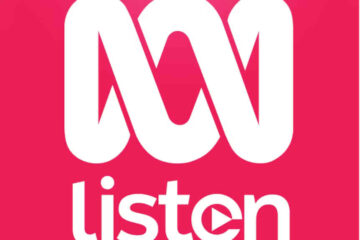Milan (AsiaNews) – Israeli political activist Gershon Baskin, founder of the Israel Palestine Creative Regional Initiative (IPCRI) and a former columnist for the Jerusalem Post, is one of the leading experts on the Israeli-Palestinian conflict. He does not shy away from criticising Israel’s current leadership, which is using Antisemitism to cover up domestic scandals, and Israeli citizens and foreigners held by Hamas for over a year to pursue the war and their military objectives, turning Israel into a “pariah state”.
He also does not leave the Palestinians off the hook. Once a truce is achieved, they should focus on preparing the ground for elections that have been postponed for far too long. However, this is not helped by a “very weak” international community that is waiting to see the first steps of an “unpredictable” Donald Trump.
As a mediator, Baskin was instrumental in the release of Gilad Shalit, an Israeli soldier held by Hamas for almost five and a half years. He was part of the Israeli-Palestinian delegation that recently met with Pope Francis. For him, freeing the hostages is crucial; their released should have been done a long time ago.
His interview with AsiaNews follows:
Let’s start with what happened recently in Amsterdam, with clashes between Israeli fans and local pro-Palestinian activists. President Isaac Herzog and Prime Minister Benjamin Netanyahu described the incident as “hunting down Jews” and a “pogrom”. What do you think?
I think it is a mix of things. I think there is an antisemitic response taking place around the world. But, I think, moreover, it is about what Israel is doing in Gaza and in Lebanon. And the anger that is spreading out among Arabs and Muslims around the world. It is not necessarily directed at Jews; it is more directed at Israel. There is antisemitism within the anti-Israel movement, but it is not all antisemitism. And I think there is a danger when the two things are equalised, when they are made equivalent because, as I said many times, criticising Israel is legitimate; antisemitism is not.
In this climate of war and growing radicalisation, can one be critical without being accused of Antisemitism?
I am critical of Israel and I am Jewish. I am not antisemitic; I am critical of Israel. It’s doing terrible things. I think Israel has committed war crimes. I think it is also important to note that Hamas committed war crimes. And Hezbollah committed war crimes.
The issue of antisemitism remains, and for this reason, should not be manipulated for political or military purposes.
For sure! I think it endangers Jews around the world when Israel equates antisemitism and criticism of Israel.
Is it possible in your opinion that the leadership is using the event in Amsterdam to cover up the controversy about the Feldstein affair and Bibi-leaks? This is a very big issue.
Entirely possible! We have a manipulative government that uses a propaganda machine that spreads poison and creates divisions within Israeli society, and around the world. And [this] creates a situation where the government is doing things that shouldn’t be acceptable and is turning public attention away from it.
What is your opinion about this political scandal diverting talks about the hostages, ensure their failure and speed up the war? What do you think about that?
Look! Netanyahu was head of the government on the October 7 [2023). He was responsible for funding Hamas; he was responsible for everything that is taking place while he is in government. He is refusing to take responsibility, refusing to create the commission of inquiry. A normal prime minister in a democracy, on October 8, would have resigned. But Netanyahu insists on staying in power, he and his cronies, and his corrupt, right-wing fanatic government. And they will do everything to prevent themselves from taking any responsibility for what is going. They are destroying the country, they are destroying the economy, they are destroying the capability of Israel to defend itself. There are reserve soldiers who are serving more than 200 days, while tens of thousands of other Israelis who are ultra-orthodox don’t get drafted at all. This is all beyond what should be acceptable.
Today Finance Minister Bezalel Smotrich said that next year Israel would annex the whole West Bank. This is against international law.
Of course! They are turning Israel into a pariah state that is forcing the international community and friends of Israel to confront Israel in a way they don’t want to. The friends of Israel in Europe do not want to turn Israel into an enemy state, but the government is doing that.
Does this have a political purpose or is there a fanatical religious goal?
Ben-Gvi and Smotrich have a messianic view; that the October 7 event was a miracle given to us by God in order to enable us to expand the entire land of Israel, get rid of the Palestinians, and settle the whole land. This is their messianic view. They are insane; they believe that they are acting in the name of God on Earth.
You played a big role in the negotiation for the release of Private Gilad Shalit. Today, is there some room to negotiate the release of Israeli hostages or is this issue secondary for the government?
[The issue] is secondary for the government, it is secondary for Netanyahu. If they wanted to bring the hostages home, they could have brought them home a long time ago. The price is known. The war in Gaza has to end and Israel has to withdraw from Gaza. And this, Netanyahu refuses to do. And the war in Lebanon will stop when the war in Gaza stops. According to the Israeli army, they have accomplished their military mission both in Gaza and Lebanon, and they could withdraw at any time.
Hamas seems to be open to shared control of the Gaza Strip with Fatah. Is this a positive sign in some way? What about the international community? What do you think of the Trump factor?
No! It is a delay tactic because Abbas cannot go into Gaza, not the Palestinian Authority not Fatah. Hamas cannot continue to control Gaza in any way. If it does, there won’t be any international support for rebuilding Gaza or for sending peacekeeping troops to Gaza, not Arab, not international. There needs to be a non-Hamas, non-Fatah government there, which is affiliated with the Palestinian authority in that it appoints at least the head of the government. Abbas does. Because there is no other legal way of doing it. And there needs to be, eventually, Palestinian unity. One of the jobs [for] the new government that will run Gaza is to prepare Gaza and the West Bank also for elections, two, three years down the road. The international community is very weak. We’ll see if Donald Trump changes that. Everyone is a bit nervous about Trump, about what Trump might do because no one knows. Probably Trump doesn’t know. It is too early and he is too unpredictable. There needs to be more international engagement in making sure this war is the last Israeli-Palestinian war. We can’t keep on doing this.
What about Israeli society, a year after the attack? Is it more radicalised; is it harder to hold talks? When will healing begin in Israeli society?
I don’t really believe Israeli society is more radicalised. I do believe it is more divided, and people more anxious and living in trauma. And in the absence of any kind of positive thinking about a peace process or negotiations, the public is responding to the reality in which they live where they don’t see anyone on the Palestinian side, or almost anyone, standing up and say: “Let’s end this; let’s make peace.” And there is no one in the Israeli political scene who’s talking about peace. So the public is responding to the reality of being in war, of being attacked, of seeing its soldiers die every day, of living in the trauma of October 7. This is temporary, this will pass when there is a change of leadership, when there are new ideas, when the Palestinians begin to demonstrate that they are interested in living in peace. This is all temporary. The healing doesn’t begin until the hostage issue is finished. That’s number one, and then healing will take decades. It’s not something that takes overnight. And it will all depend on having new leaders and a new government, and people who offer some hope because right now many young people in Israel are looking around and saying: “I have no future here.”
What about the Abraham Accords? What about Saudi Crown Prince Mohamed bin Salman using the word genocide?
The most important country is Saudi Arabia. The question is whether Saudi Arabia is going to use its influence in a more determined way than it did in the past. If the Saudis make conditional any normalisation with Israel, not on the path to Palestinian statehood, but to Palestinian statehood itself, then the Saudis can have a lot of influence. And this depends first on them, and also depends on what the United States does with the Saudis. You have to remember that 70 per cent of Saudi citizens are under the age of 30. They are all young people, they are all on social media; they see the reality of Gaza, and he (the crown price) cannot ignore what people on the Saudi street think, feel, and are saying.
What do you think about Qatar, and its step back from its apparent support for Hamas?
It is interesting that they did it now. I wrote more than half a year ago that they should have done the same thing. Of course, this needs to be coordinated with Egypt. And it should be used as a leverage to bring the parties back into negations. They didn’t stop negotiating. They said: “We are waiting until the sides demonstrate that they are serious.”



